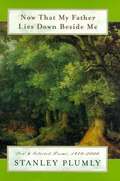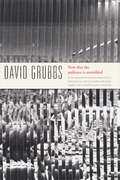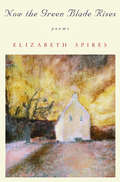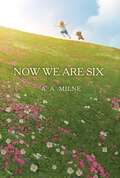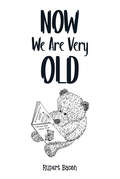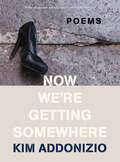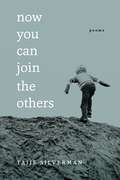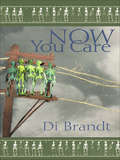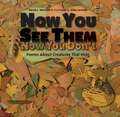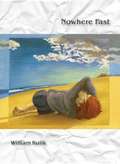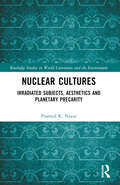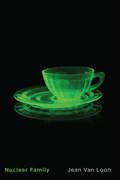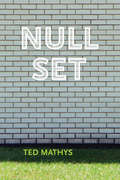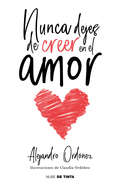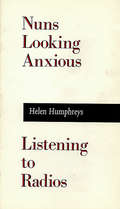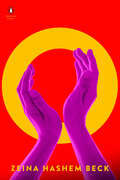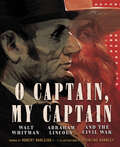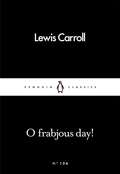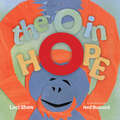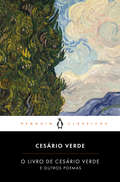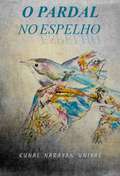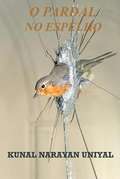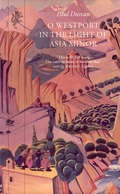- Table View
- List View
Now That My Father Lies Down Beside Me: New & Selected Poems, 1970-2000
by Stanley PlumlyA selection from the career of one of the important poets of the last half of the 20th Century.
Now that the audience is assembled
by David GrubbsFollowing his investigation into experimental music and sound recording in Records Ruin the Landscape, David Grubbs turns his attention to the live performance of improvised music with an altogether different form of writing. Now that the audience is assembled is a book-length prose poem that describes a fictional musical performance during which an unnamed musician improvises the construction of a series of invented instruments before an audience that is alternately contemplative, participatory, disputatious, and asleep. Over the course of this phantasmagorical all-night concert, repeated interruptions take the form of in-depth discussions and musical demonstrations. Both a work of literature and a study of music, Now that the audience is assembled explores the categories of improvised music, solo performance, text scores, instrument building, aesthetic deskilling and reskilling, and the odd fate of the composer in experimental music.
Now the Green Blade Rises: Poems
by Elizabeth Spires"Spires is a jewel of a poet, never self-conscious or self-indulgent."--Los Angeles Times Opening with a powerful sequence of poems about her mother's death, Elizabeth Spires writes about the life-and-death matters of midlife: the separation of parent from child, the loss of family and friends, the evolving nature of our closest friendships. These poems find hope in the seasonal and spiritual moment when "the green blade rises."
Now We Are Six (The Winnie-the-Pooh Collection)
by A. A. MilneWith a gorgeously redesigned cover and the original black and white interior illustrations by Ernest Shepard, this beautiful edition of the beloved classic poetry collection featuring Winnie-the-Pooh and Christopher Robin Now We Are Six by A. A. Milne is sure to delight new and old fans alike!Originally published after the novel Winnie-the-Pooh and the verse collection When We Were Very Young, A. A. Milne wrote this classic book of children&’s poems about and for his son Christopher Robin when he turned six. With appearances from the beloved Winnie-the-Pooh throughout, these sweet and funny poems tell of playful adventures, the joys and pains of growing up, memorable animal friends, and more.
Now We Are Very Old
by Rupert BaconIf poetry be the food of love, read on’ as some particularly famous playwright bloke once said or maybe he didn’t. It might have been that he said, ‘if music be the food of love, play on’. Frankly, be that as it may, this composer of little rhyming ditties thinks poems are rather fun and many of them are, in any case, about things he loves. Thus, it works either way. This little volume of twenty-four poetic offerings on various themes (plus one totally free extra ditty in the introduction, please note) rather proves the point even if the author most un-humbly does say it himself. Read out loud with rhythm in your voice. Set them to music of your own choosing and sing them if you like. However you prefer to take your poems, please enjoy them for what they are: a bit of simple fun.
Now We're Getting Somewhere: Poems
by Kim AddonizioA dark, no-holds-barred, and often hilarious collection from a prize-winning poet, veering between the poles of self and world. Kim Addonizio’s sharp and irreverent eighth volume, Now We’re Getting Somewhere, is an essential companion to your practice of the Finnish art of kalsarikännit—drinking at home, alone in your underwear, with no intention of going out. Imbued with the poet’s characteristic precision and passion, the collection charts a hazardous course through heartache, climate change, dental work, Outlander, semiotics, and more. Combatting existential gloom with a wicked, seductive energy, Addonizio investigates desire, loss, and the madness of contemporary life. She calls out to Walt Whitman and John Keats, echoes Dorothy Parker, and finds sisterhood with Virginia Woolf. Sometimes confessional, sometimes philosophical, these poems weave from desolation to drollery and clamor with raucous imagery: an insect in high heels, a wolf at an uncomfortable party, a glowing and self-serious guitar. A poet whose “voice lifts from the page, alive and biting” (Sky Sanchez, San Francisco Book Review), Addonizio reminds her reader, "if you think nothing & / no one can / listen I love you joy is coming."
Now You Can Join the Others: Poems
by Taije SilvermanNow You Can Join the Others, the second collection of poetry by Taije Silverman, traces the absurdities of desire, the shifting nature of grief, and the concentric circles of history and myth that ripple around motherhood and marriage. Set in cities around the world and on real and metaphorical islands, narratives slip between centuries and spaces: a Philadelphia bedroom and Berlin’s Jewish Museum, a castle in Naples and a Chuck E. Cheese. Scenes of sexual and racial violence force an interrogation of words through a multiplicity of voices, and the othering of self becomes a shared, even reassuring alienation. From a sixteenth-century philosopher to a lecherous innkeeper in Modena, from the founding of Athens to the hatching of cicadas, this book investigates human, geological, and cyclical forms of time, suggesting that they are as material and evasive as language. Intricate, unexpected, and probing, Now You Can Join the Others is a radically candid, revelatory collection.
Now You Care
by Di BrandtNominated for a Griffin Poetry PrizeIn Now You Care, her fifth collection of poetry, Di Brandt voices a passionate argument against environmental degradation and a plea for psychic transformation in our violent times. Tuned in to the toxic fallout of over-industrialization and war, these poems face the dark side of our postmodern climate with a language that doesn't give in. They tremble and shake, they rage against despair, they speak against death and wrestle with the fateful spirits of Armageddon to loosen their choke-hold on humanity. Perhaps we won't figure it out and the horizon is already on fire, and our best love will never be more than an approximation of regret, but grass still grows between the cement blocks of the sidewalk to 'grin of the wild.'
Now You See Them, Now You Don't: Poems About Creatures that Hide
by David L. HarrisonFind me if you can. . . for if you don&’t, I&’ll be here tomorrow . . . you won&’t. Animals and insects use camouflage to hide from hunters or to ambush prey. Stealth is a very useful technique when it comes to survival. In this fun and informative collection of poems, we meet animals such as the polar bear and the octopus; the ghost crab and the copperhead snake; and many more that use camouflage to hunt or to hide. Giles Laroche&’s intricate cut-paper illustrations are beautiful and life-like. Readers will have to look carefully or run the risk of a hunter sneaking up on them. Back matter offers additional information about each of the nineteen animals.
Nowhere Fast
by William KulikNowhere Fast offers a view of a world where fools rush in only to be baffled by ordinary dramas--of sexuality and gender, of family, of death and dying. By turns rueful, sardonic and tender, these narratives are overseen by a joyous mockery which reveals to us what Allen Ginsberg once called our quintessential "jerkhood"--to be living in a realm where satisfaction is denied and expectations are frustrated--the heart and soul of the absurd. In sixty exquisite prose poems, memory, dream and fantasy take turns animating the many identities of the "I" in a dark comedy of manners where the surreal underscores our eternal condition. In turns jocular and menacing, masculine and vulnerable, bawdy and rueful, Nowhere Fast marks the debut collection of a poet it seems we've always been waiting for.
Nuclear Cultures: Irradiated Subjects, Aesthetics and Planetary Precarity (Routledge Studies in World Literatures and the Environment)
by Pramod K. NayarNuclear Cultures: Irradiated Subjects, Aesthetics and Planetary Precarity aims to develop the field of nuclear humanities and the powerful ability of literary and cultural representations of science and catastrophe to shape the meaning of historic events. Examining multiple discourses and textual materials, including fiction, poetry, biographies, comics, paintings, documentary and photography, this volume will illuminate the cultural, ecological and social impact of nuclearization narratives. Furthermore, this text explores themes such as the cultures of atomic scientists, the making of the bomb, nuclear bombings and disasters, nuclear aesthetics and art, and the global mobilization against nuclearization. Nuclear Cultures breaks new ground in the debates on "the nuclear" to foster the development of nuclear humanities, its vocabulary and methodology.
Nuclear Family (Hugh MacLennan Poetry Series)
by Jean Van LoonIn the night her whitened toes / cold sole on his calf / between his palms he warms / a slender foot – / twig bones, taut skin.Jean Van Loon’s father was a metallurgist in an Ottawa lab that contributed to the Manhattan Project. The Geiger counter he brought home exposed her mother’s dinner plate as radioactive. Her childhood friend’s father sold cobalt bombs to the Soviet Union. Unbeknownst even to the family, her mother worked for Canada’s Cold War intelligence service.Rooted in memory and history, Nuclear Family carries the reader into the sense of impending nuclear doom and the explosions of material wealth that shaped Van Loon’s childhood. Poems come alive with image, sound, and texture, portraying the innocence of childhood games, the worldwide effects of prolonged nuclear testing, and the long-lasting legacy of her father’s suicide – a fallout of radioactive silences.In Nuclear Family violent events, both global and familial, permeate a girl’s coming of age in a story of cataclysm and, ultimately, recovery.
Null Set
by Ted MathysNull Set collects the slightly obsessive possibilities that rise when we give them the space--odd jobs, trouble-making, and farm boy rambling, all in dialogue with mathematics, or William Faulkner, or other poets.From "Hypotenuse":HYPOTENUSEI write three, erase it, blow rubbershavings from the desk. Write its notation,erase it, blow shavings. Then three 3serased, shavings blown, persistfor the nonce, three of nothing, nowhereattending to discrete objects for counting,themselves objects at any rate. To kiss,sleep, and focus we know to closeour eyes, imagine. I do, see nothing.
Nunca dejes de creer en el amor
by Alejandro OrdóñezEl amor es un camino que se nos revela sin esperarlo. En este libro, Alejandro Ordóñez nos muestra las profundidades de cada una de las fases de una relación: desde el primer destello de posibilidad hasta la estabilidad romántica, explorando también qué sucede cuando una relación no puede dar más de sí y se decide separar los caminos, sin perder la fe en que llegará la persona correcta. En Nunca dejes de creer en el amor descubriremos, a través del característico estilo de prosa poética del autor, cómo este sentimiento, tan persistente, se abre paso a través de la reticencia y el dolor de cicatrices viejas para encontrar un nuevo corazón donde anidar y, quizá, madurar… y nos permite saber que si ese corazón no se logra convertir en un buen puerto, hay paz en dejarlo ir para seguir esa búsqueda en otro lugar. Lleno de optimismo y confianza, Alejandro Ordóñez nos muestra que, lo estemos buscando o no, el amor siempre encuentra la manera de entrar en nuestras vidas, ya sea en una mirada pasajera o en un encuentro fortuito. Estar abiertos a él es siempre el primer paso.
Nuns Looking Anxious, Listening to Radios
by Helen HumphreysAlcuin Citation in 1991 for excellence in book design in Canada. Nuns Looking Anxious, Listening to Radios is a work in the hazard of retrieval. What sticks in retrospect? Seldom what you would expect, not always the happiness. Otherwise you could train for life, you could actually learn from grandmothers, mothers; poems -- those bodies of lines and spaces -- would not appear unbidden bearing news you hold your breath to hear. Helen Humphreys comes through the rich reproach of the past into the present, a bruise, a beautiful bloom.
Nursery Rhymes
by Random HouseA book that contains a collection of many favorite nursery rhymes for children of all ages.
Nurturing Paws
by Whispering Angel BooksJohnston presents more than 80 uplifting and inspirational short stories and poems demonstrating the amazing physical, emotional, and spiritual healing effects of animals in people's lives. 196 pp.
O (Penguin Poets)
by Zeina Hashem Beck&“O is so full of music and passion for life . . . Zeina Hashem Beck&’s poems unfold the abundance of our world.&” —Ilya Kaminsky, author of Deaf Republic From a "brilliant, absolutely essential voice" whose "poems feel like whole worlds" (Naomi Shihab Nye), a poetry collection considering the body physical, the body politic, and the body sacredZeina Hashem Beck writes at the intersection of the divine and the profane, where she crafts elegant, candid poems that simultaneously exude a boundless curiosity and a deep knowingness. Formally electrifying—from lyrics and triptychs to ghazals and Zeina's own duets, in which English and Arabic echo and contradict each other—O explores the limits of language, notions of home and exile, and stirring visions of motherhood, memory, and faith.
O Captain, My Captain: Walt Whitman, Abraham Lincoln, and the Civil War
by Robert BurleighThis beautifully illustrated children’s book explores how Walt Whitman was affected by the Civil War and inspired by President Lincoln.O Captain, My Captain tells the story of one of America’s greatest poets and how he was inspired by one of America’s greatest presidents. Whitman and Lincoln shared the national stage in Washington, DC, during the Civil War. Though the two men never met, Whitman would often see Lincoln’s carriage on the road. The president was never far from the poet’s mind, and Lincoln’s “grace under pressure” was something Whitman returned to again and again in his poetry. Whitman witnessed Lincoln’s second inauguration and mourned along with America as Lincoln’s funeral train wound its way across the landscape to his final resting place. The book includes the poem “O Captain! My Captain!” and an excerpt from “When Lilacs Last in the Dooryard Bloom’d,” as well as brief bios of Lincoln and Whitman, a timeline of Civil War events, endnotes, and a bibliography.
O Frabjous Day! (Penguin Little Black Classics)
by Lewis Carroll'I cried, "Come, tell me how you live!"And thumped him on the head.'Conjuring wily walruses, dancing lobsters, a Jabberwock and a Bandersnatch, Carroll's fantastical verse gave new words to the English language.
O Livro de Cesário Verde e Outros Poemas
by Cesário VerdeUM POETA REVOLUCIONÁRIO DA POESIA EM LÍNGUA PORTUGUESA. NOS PENGUIN CLÁSSICOS, O LIVRO DE CESÁRIO VERDE, AQUELE A QUEM FERNANDO PESSOA CHAMOU «MESTRE». COM PREFÁCIO DE PAULA MORÃO. «Se eu não morresse, nunca! E eternamente Buscasse e conseguisse a perfeição das cousas!» É de 1887 a publicação de um dos mais belos e importantes livros de poesia em língua portuguesa. No ano anterior, 1886, morria, aos 31 anos, o seu autor, vítima de tuberculose e da maior incompreensão e desdém dos seus pares. Cesário Verde, o homem que viu poesia na sujidade das ruas, no corpo doente da engomadeira, na azáfama dos trabalhadores, revolucionou o cânone e impôs uma nova forma de olhar o real, de o descrever e sentir. Entre a cidadee o campo, o caos e a liberdade, o idílio e a realidade, emerge em Cesário uma nova sensibilidade, transgressora, que privilegia os sentidos e as impressões do quotidiano em detrimento de um sentimentalismo exacerbado que sentia já distante, imposição de uma consciência social preconizadora de um final de século turbulento. Chegaria tarde demais para Cesário o reconhecimento do seu génio e do seu papel determinante na história da poesia portuguesa. Mas não seria tarde demais para quem, graças ao trabalho e dedicação do seu amigo Sousa Pinto, pôde ler os inigualáveis poemas de um dos maiores poetas de língua portuguesa e compreender o alcance da modernidade e inventividade dos versos daquele a quem Fernando Pessoa chamaria «mestre».
O Pardal no Espelho
by Kunal Narayan UniyalDesde o episódio da desobediência, o homem tem travado uma luta constante contra seu maior adversário: seu EGO. Quanto mais se entrega a seu ego, mais recebe do seu Eu divino. Suas motivações materialistas, sua busca por poder e sua brutal indiferença o alienam e isolam. Escravizado pelo ego, o homem se regozija por falso orgulho, por mais falsa glória e por uma segurança mais falsa ainda. A busca é infinda. A sede não é nunca saciada. A mente se mantém pré-ocupada. O coração fervilha em turbulência. A frieza da razão obscurece a sabedoria e a gênese humana anseia por justificativas. Contudo, o benevolente Senhor possui um plano maior. Somos todos agraciados por um reino interior. A partir do momento em que iniciamos nossa jornada interior, a névoa começa a se dissipar. A sabedoria infinita desperta. Todo barulho cessa e a calmaria se infiltra. A alegria verdadeira salta do coração rumo à paz, à harmonia e ao equilíbrio. Basta apenas uma pausa e uma espiadela para dentro.
O Pardal no Espelho
by Kunal Narayan UniyalDesde o ato de desobediência, o homem debateu-se desde sempre com o seu maior adversário, o seu ego. Quanto mais cede ao ego, mais obtém do seu eu divino.As suas motivações materialistas, a sua avidez pelo poder e a indiferença alienam-no e isolam-no.Reduzido à escravatura pelo ego, o homem compraz-se no falso orgulho, na falsa glória e na falsa segurança.A avidez nunca termina.A sede nunca está saciada.O espírito permanece inquieto.O coração fervilha na tempestade.As nuvens dissipam a sabedoria e a sede humana é ávida de jsutificações.Contudo, o Senhor benevolente tem um plano magistral.Possuímos todos um reino interior.No momento em que iniciamos a viagem rumo ao interior, a névoa começa a dissipar-se rumo à alvorada da sabedoria infinita.Todos os barulhos cessam e a calma invade o ser.A verdadeira alegria que jorra do caração conduz à paz, harmonia e equilíbrio.
O Westport In The Light Of Asia Minor
by Paul DurcanO Westport in the Light of Asia Minor was first published in a tiny edition in Dublin in 1975. It was Paul Durcan's first fully-fledged collection, and already displays an astonishingly mature, visionary power, shot through with the surrealism and heart-breaking comedy that have since become his hallmark. It won him the Patrick Kavanagh Award. Now Durcan's readers can discover what they have been missing. The poems are printed in the order he originally intended, and the volume concluded with six poems from his very first collaborative collection, Endsville (1967), with Brian Lynch.
